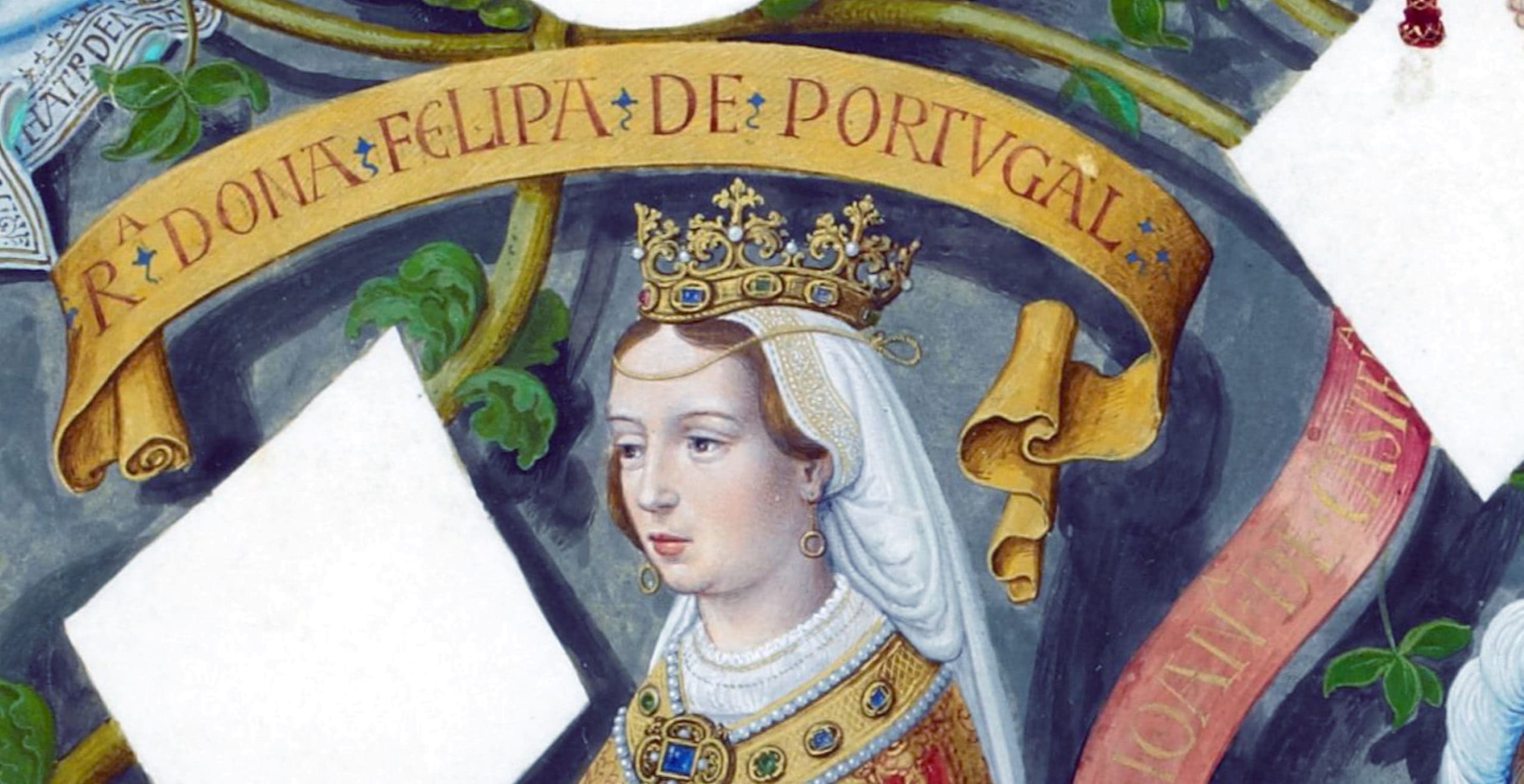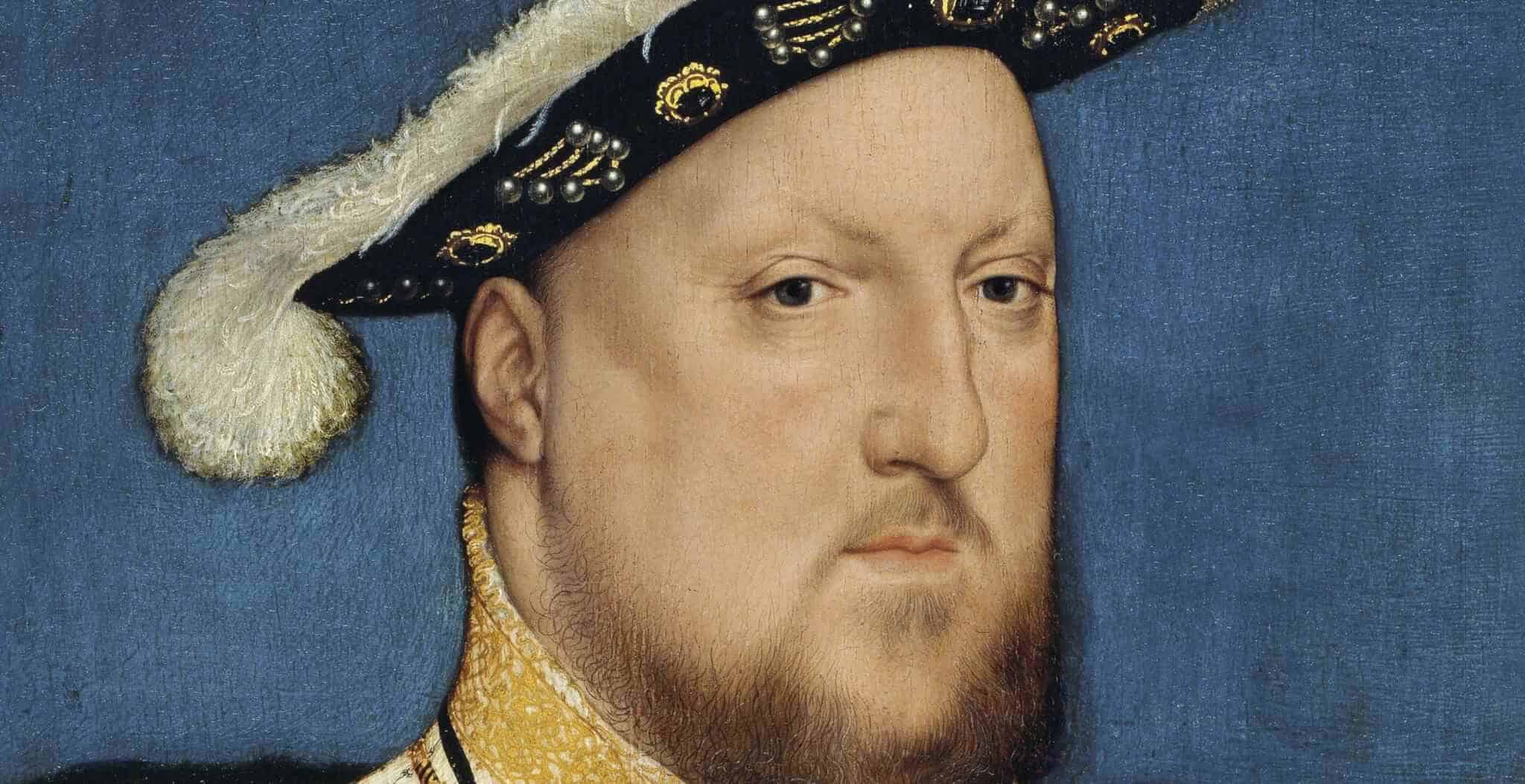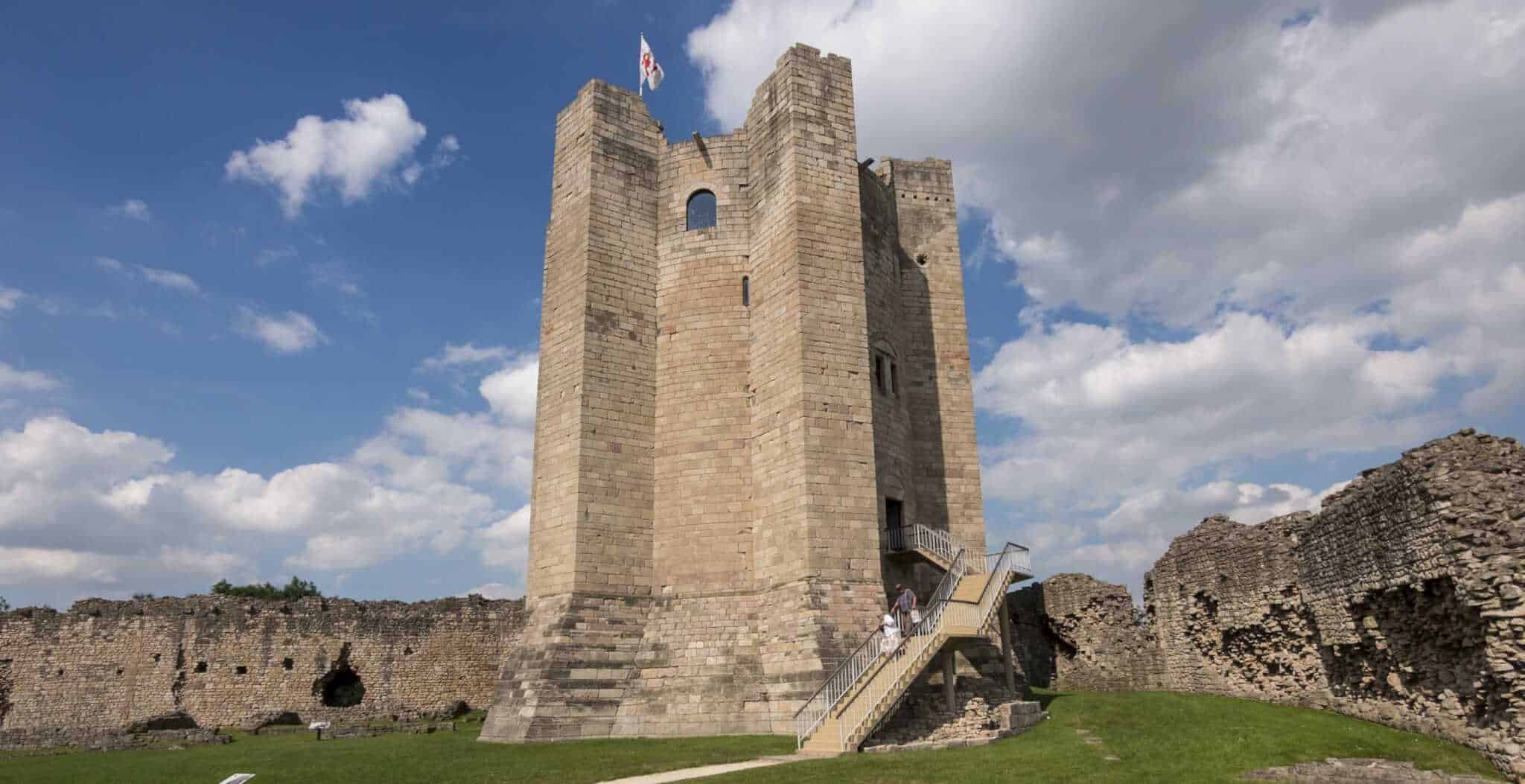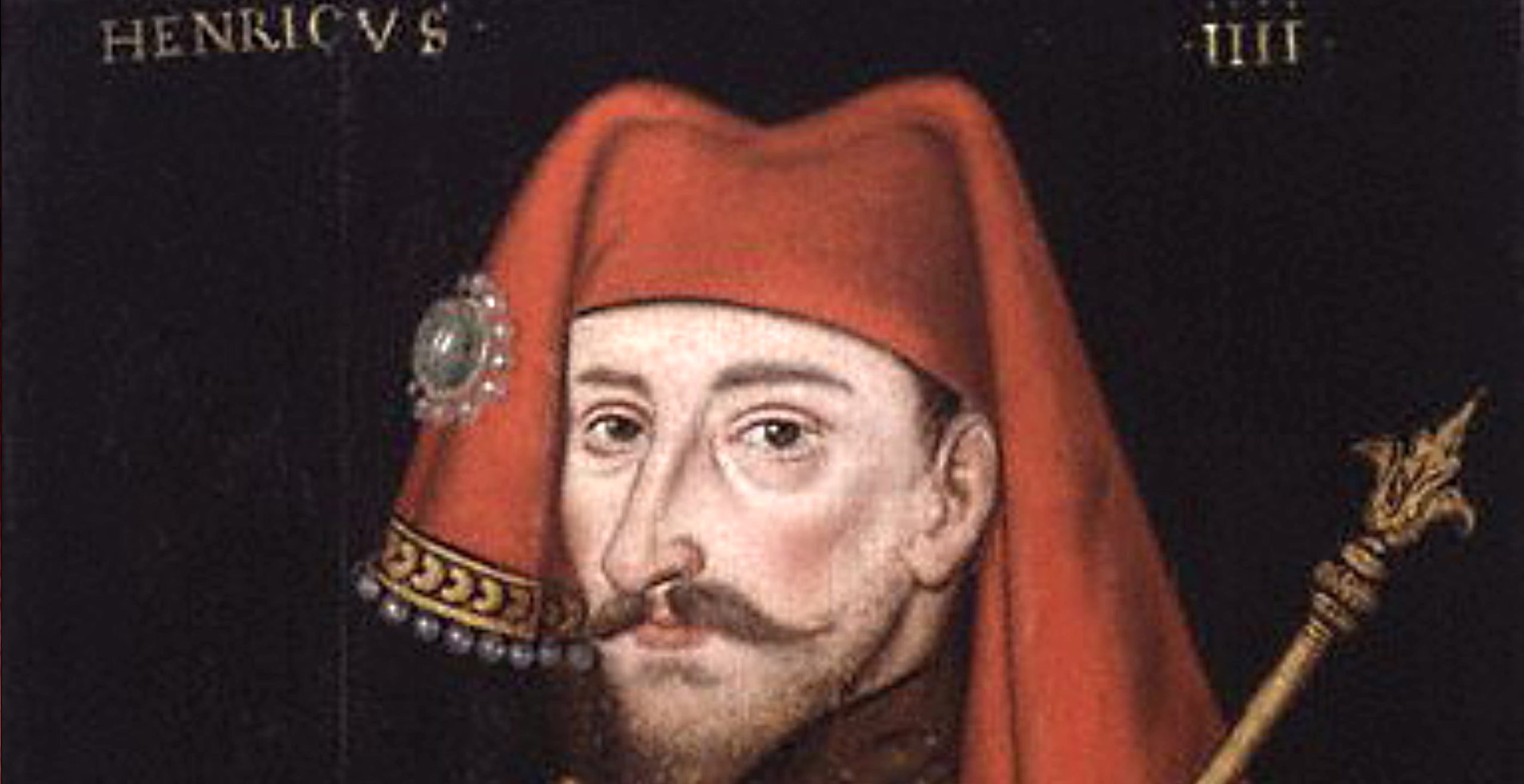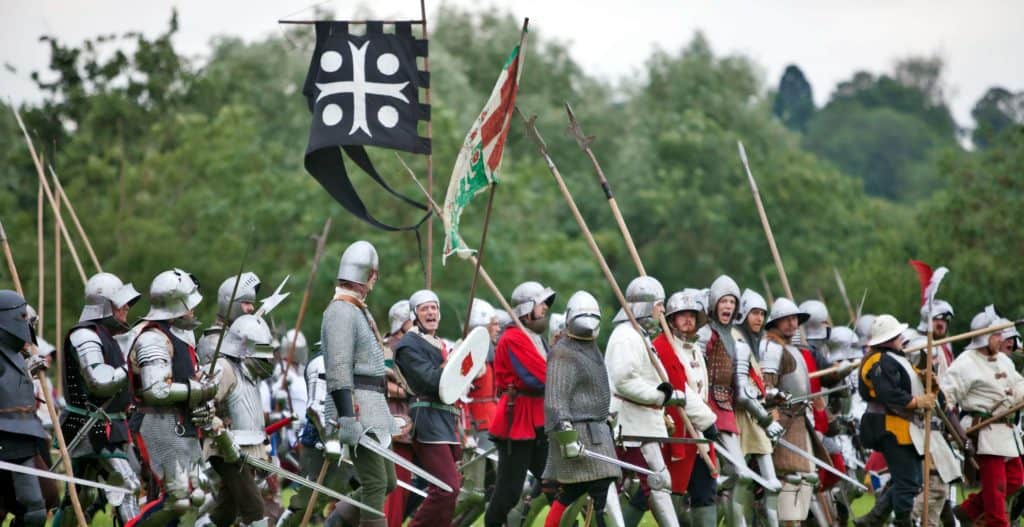Queen Consort of Portugal, mother of the famous Henry the Navigator, Philippa of Lancaster, the English-born queen of a foreign kingdom had an enormous impact on the prosperity of her adopted nation of Portugal.
As part of the English Royal family, young Philippa’s betrothal to King John I of Portugal ratified the diplomatic alliance between Portugal and England, encapsulated in the 1386 Treaty of Windsor, an alliance which survives to this day.
The English Rose of Portugal was a woman at the centre of diplomatic, economic and commercial decisions of two important nations.
Her story begins on the 31st March 1360. Born at Leicester Castle, her father was John of Gaunt, the Duke of Lancaster and her mother Blanche of Lancaster, cousin to John and heiress in her own right.
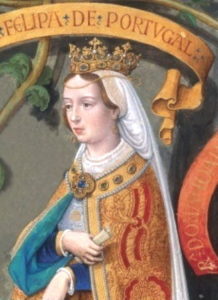
During her childhood, young Philippa lived in various English aristocratic homes: castles and palaces were her normality. Her siblings, the two who would survive infancy, were Elizabeth, the future Duchess of Exeter and her brother Henry, future King Henry IV, the Lancastrian King.
In her youth, Philippa sadly lost her mother to the bubonic plague when she was only eight years old. A few years later her father married the daughter of King Pedro “the Cruel”, Constanza of Castile. Most significantly for Philippa, after Constanza passed away in 1394 her father took a mistress who would serve as Philippa’s governess and with whom she would establish a good relationship, Katherine Swynford.
Katherine’s input into Philippa’s upbringing proved significant as she introduced her to Geoffrey Chaucer, who also happened to be her brother-in-law, bringing him into the inner circle of the royal family. As a result, Chaucer became an important influence and one of Philippa’s mentors, contributing to her education. She soon became a very knowledgeable woman for her time with poetry, philosophy, religion and history providing the building-blocks for this young woman to become well-versed like her male compatriots.
As she matured into a young woman, Philippa would very soon be asked to fulfil an important diplomatic responsibility as wife of the King of Portugal. Philippa was of noble blood and she was no stranger to the demands of such a role, which she embraced significantly. Despite some concerns voiced over her age, which at twenty-seven was considered to be far too late to provide children, Philippa rose to the occasion and ended up producing a successful marriage with nine children.
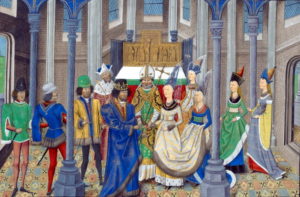
On 14th February 1387, her union with John I of Portugal was sealed at Porto Cathedral: celebrations were jubilant and continued for fifteen days. She married her king by proxy, whilst her “stand-in” groom was João Rodrigues de Sá. After this rather unorthodox wedding, Philippa only met her husband, the real-life John I, twelve days later.
Unsurprisingly for the time, this was a royal marriage based on diplomatic and economic concerns. John I had very little interest in his new bride: after all, he already had a mistress with whom he had three children. Nevertheless, Philippa appeared to take such circumstances in her stride, choosing to allow the children to be raised in the Portuguese court whilst sending their mother to live in a convent.
Her marriage was already a diplomatic success, having cemented the Treaty of Windsor one year previously. King John I of Portugal, through his marriage to Philippa now had a political and personal relationship with John of Gaunt. After initial concerns about John of Gaunt’s Castilian ambitions, the Portuguese-English Alliance was established and survived challenges and upheavals throughout the centuries, remaining the oldest surviving alliance of its kind.
Back in Portugal, as the Queen consort of Portugal Philippa was busy providing royal patronage for England’s commercial interests at the time. Wine, salt, oil and many more items were exchanged and traded between ports, successfully creating foundations for strong economies in both Portugal and England.
Whilst she served as a royal bride to John I and observed the necessary boundaries between a man’s role and a woman’s role in medieval Europe, she was surprisingly active in dealing with diplomatic affairs both in Portugal and back in England. Her influence in both courts was something she was able to maintain throughout her life, with her personal interference in political situations back in England evident through correspondence. One such example of her sway in court was her inducement of the Earl of Arundel to marry her husband’s daughter Beatrice, thus solidifying the bonds between the nations.
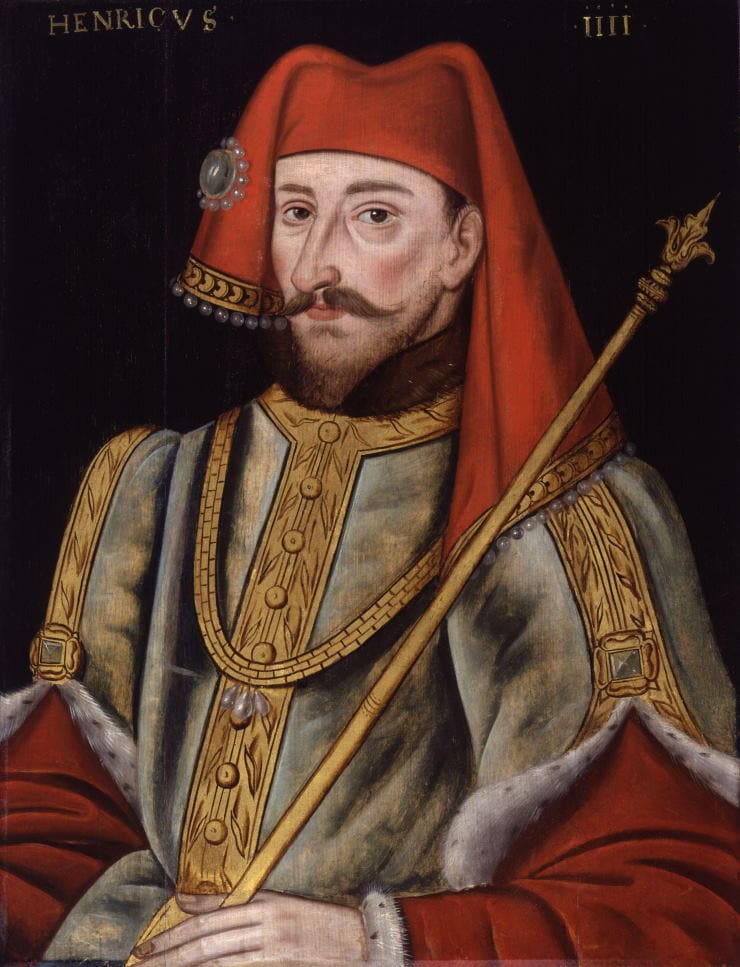
Furthermore, she was called upon to deal with the political situation back in England when her brother dethroned King Richard II in 1399. She may have been a queen consort but she wielded considerable power across two nations whose ambitions were blossoming both at home and overseas.
Back at home, Philippa continued to prosper and produce a large family of nine children, six of them surviving into adulthood. She was a woman who took her role very seriously and in producing a secure family unit, she paved the way for what became known as the “Illustrious Generation”.
Her first surviving son, Edward, would go on to become King of Portugal in 1433, meanwhile his siblings would go on to have great achievements of their own. Her daughter, Isabella went on to marry Philip III of Burgundy, whilst her son John produced a royal dynasty to be proud of, including Isabella of Castile and her daughter, Katherine of Aragon, who was destined to become Queen of England through her marriage to Henry VIII. The family connections most definitely came full circle.
Nevertheless, one particular son was destined to steal the spotlight: Henry, better known as Henry the Navigator, who became the poster boy for the Age of Discovery. Responsible for sponsoring the Portuguese exploration of maritime routes around the coast of Africa, his actions helped to usher in a new age of medieval exploration and early modern globalisation, putting Portugal firmly at the centre of proceedings.
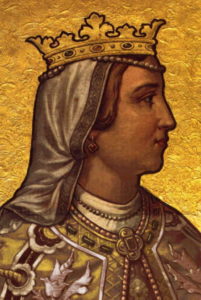
Philippa had spent her entire life serving the courts both England and Portugal, eventually passing the mantle on to her children. Nevertheless her swansong, before her death in July 1415, was the instigation of the conquest of Ceuta in North Africa. Upon Philippa’s suggestion, the Battle of Ceuta which would play out only a month after her death and would pave the way for Portugal’s imperial dominance in Africa and the acquisition of the lucrative spice trade.
Philippa had observed how the Portuguese economy was feeling the strain of engaging in several conflicts with both Castile and the Moors. As she cast her diplomatically and commercially astute eye over proceedings, she identified control of Ceuta as the lynch pin of future success with the African and Indian spice market.
Acting on her advice, her son Henry the Navigator and his father, John I of Portugal embarked on the mission which would end in success for the Portuguese. Whilst sadly Philippa died before the plan was enacted, it was a testament to the will of such a strong woman who wielded great power and diplomacy, and contributed to a new era of discovery for a generation.
Sadly, on 19th July 1415, like her mother before her, she succumbed to bubonic plague. Before she passed away she gave her three eldest sons jewel encrusted swords, which they would use for their knighthood. Whilst her husband had initially been indifferent to the prospect of his new wife, their combined success had led to great bond. As the royal family grieved for the queen, her own life and legacy remained quite remarkable.
A strong, independent-minded woman, her influence in economic, political and diplomatic affairs was considerable. Her actions helped to pave the way for a new generation of discovery, economic success and unbreakable alliances, changing the world forever.
Jessica Brain is a freelance writer specialising in history. Based in Kent and a lover of all things historical.
